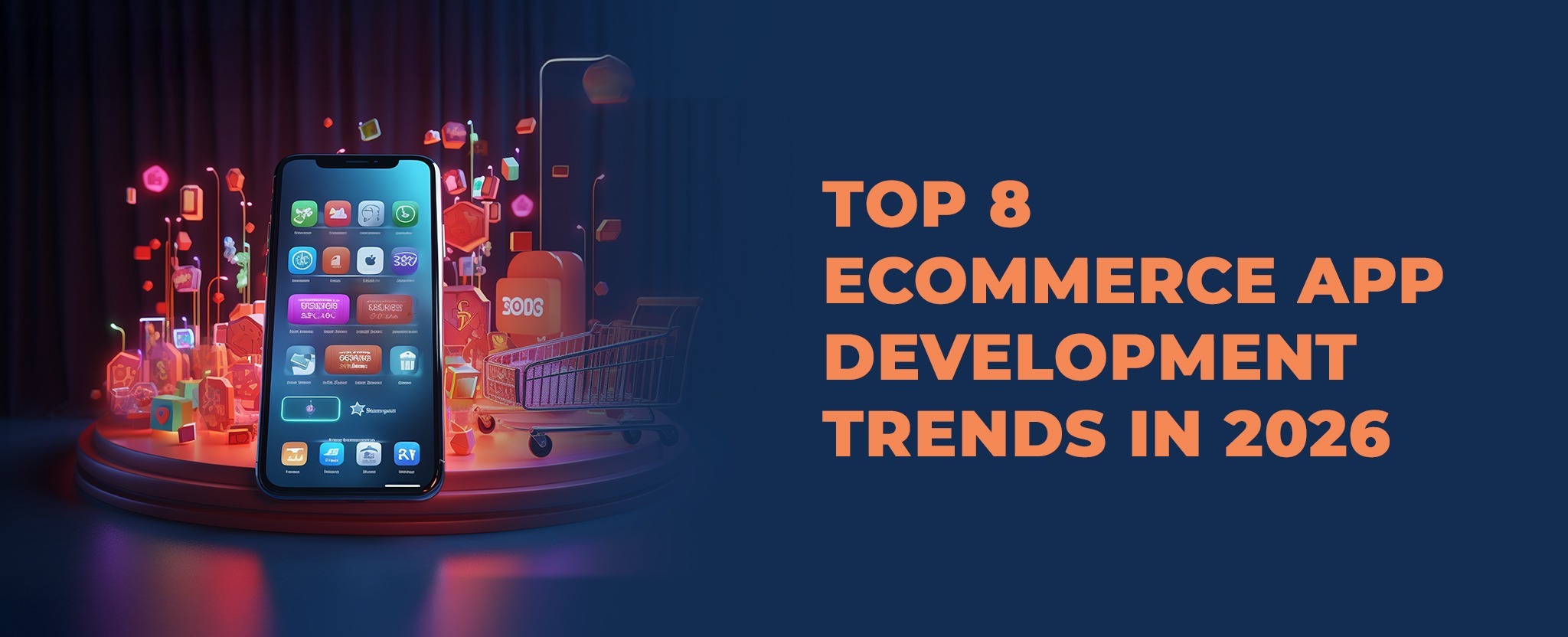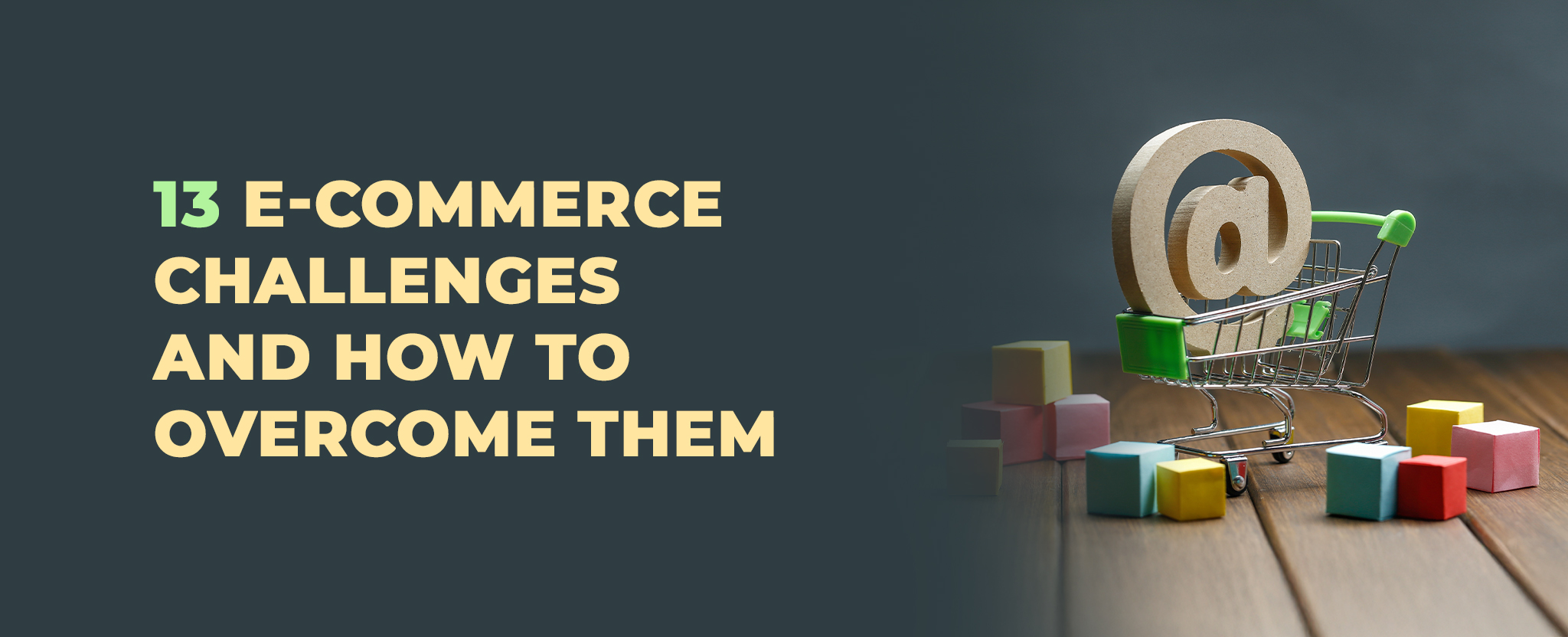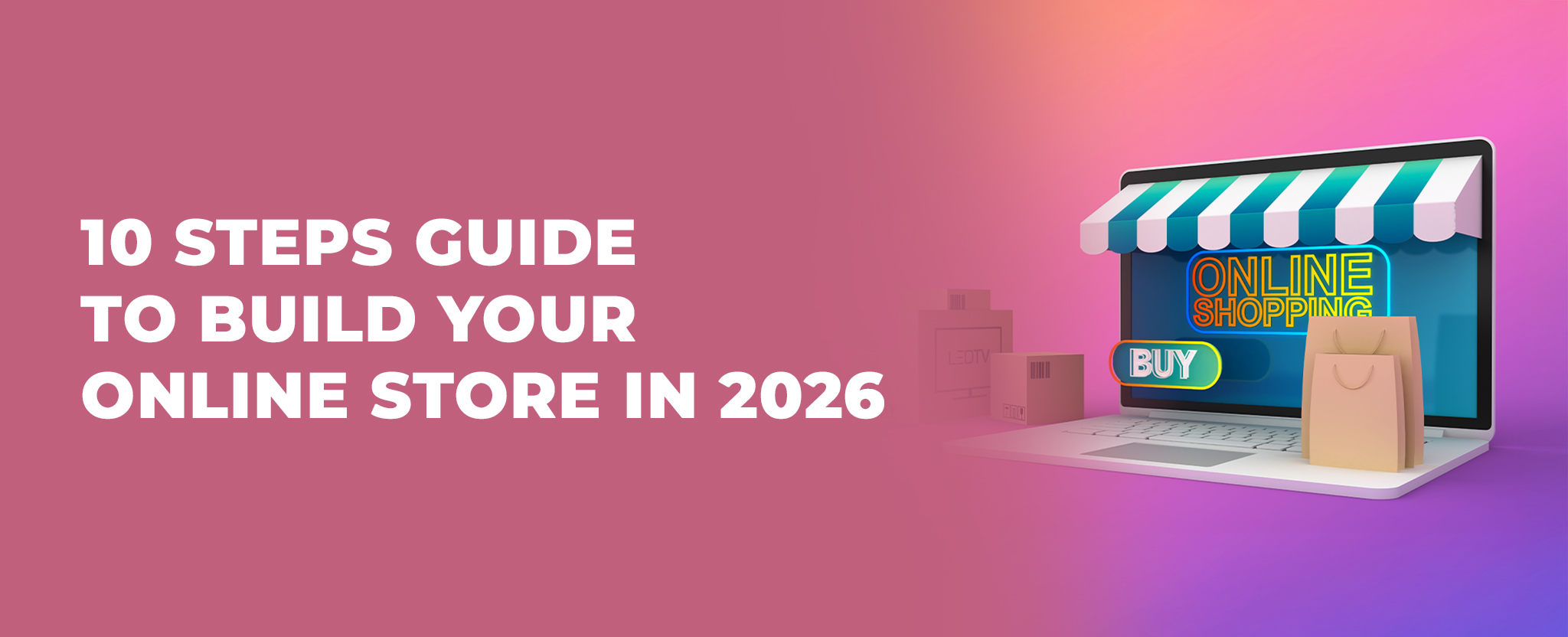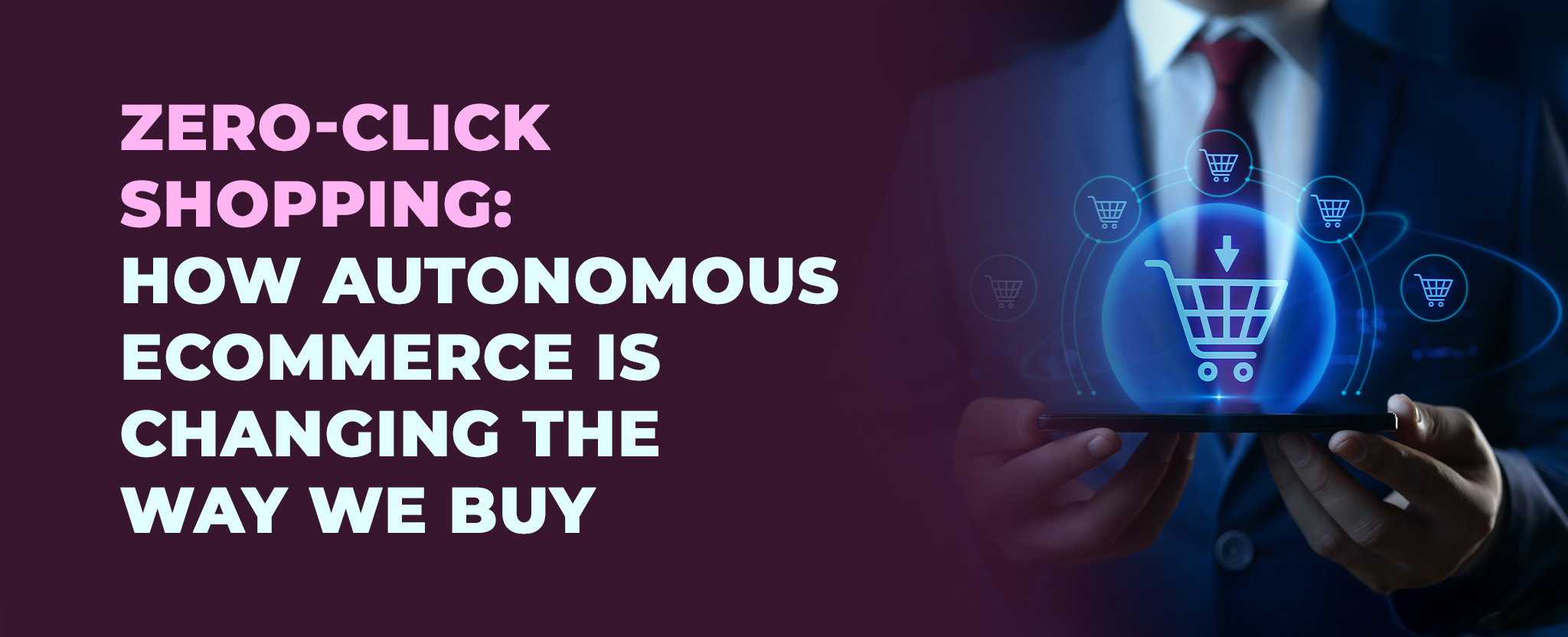The Best Guide to B2B E-commerce: Definition, Types, Benefits & Best Practices
14 Sep 21 


For most of us, when we think about the e-commerce space and the opportunities flourishing in that market, B2C models come first into our heads. But did you know that when compared to B2C, the B2B industry is way bigger in size? As per reports, from 2020 to 2025, the most e-commerce growth is expected in the B2B sector! This means big things are on the horizon for businesses operating in the B2B model.
Excited to know more about it? Then, keep reading! In this blog, we will discuss the B2B e-commerce business model, the role of mobile apps in it, the advantages, future, and more.
What is B2B E-commerce
B2B e-commerce, or business to business electronic commerce, is a business model where transactions happen between two businesses through online channels. That is one business selling to another business. It is different from the B2C model about which we will see in the next section. But just like it, B2B models also span across different types, industries, and services, like consumer goods, machinery, accounting, etc.
Earlier, B2B businesses used to not focus much on online channels. Much of their sales happened in offline setups, through direct sales. However, with the rise in mobile and internet usage, the entry of millennials into the B2B market, and the impacts of Covid-19, B2B businesses are utilizing online mediums for enhancing their sales. And since transactions happen digitally, it improves the overall efficiency of the business operations.
What is B2C E-commerce
B2C e-commerce, that is, business to consumer electronic commerce, is when businesses sell directly to consumers through online networks. We know a lot of B2C companies and probably do most of our shopping from those channels. For example, when you buy a laptop from Amazon or order some furniture from Walmart or buying directly from B2C E-commerce, you are performing a B2C transaction. Essentially, B2C e-commerce is what the general audience refers to whenever they say e-commerce. We all know it, use it, and love it!
What are the Differences Between B2C and B2B E-commerce
When we compare B2C and B2B e-commerce business models, we will see that there are a number of differences between them. They don’t both follow the same route. The majority of these differences arise from the fact that they both serve different buyers. While in B2C, a business may be selling to the general public, in B2B, they will be selling to specific business groups, who would be the ones that get in touch with the end-customers.
Some of the key differences that sets B2B models apart from B2C are:
Long-term partnerships: In a typical B2C transaction, a customer purchases something to satisfy an immediate need. These are primarily one-time purchases. However, in B2B models, long-term partnerships are more prevalent. Since businesses in a vertical would mostly be interconnected, there will be recurring transactions and long-term relationships.
Longer buying cycle: In B2B models, buying cycles are long and complex. Purchase decisions are not made spontaneously, like B2C. This is because the buying process involves a group of people with varying interests and would require more contracts, quotes, and such details. Also, because of the long-term partnership, the buyers focus more on the quality and credibility of sellers.
Numerous decision-makers: B2C transactions deal with individual buyers, whereas in B2B, buyers are mostly a group. In B2B, there will be multiple stakeholders and users involved, all of whom will have power over the decision-making. The more the number of people involved, the more dependent decisions, buying processes, and choices will be.
Complicated payment procedures: In the B2C model, the payment is straightforward- buyers pay through cash, money transfer apps, or cards. However, in the B2B models, payments have to follow a more complicated process involving credits, transfers, and invoices. This can get even more complex depending on the order size, value, etc.
Shift in buyers’ focus: In B2C transactions, buying decisions are spurred by the instant needs of customers, and they choose a product that fits their needs. However, in B2B, the buyers focus on how the product will impact their business. The buying decisions are planned and take into account many things other than a product meeting their needs- like, ease of transactions, communication, convenience, etc.
Higher purchasing volume: B2B purchases are high in volume as businesses mostly buy in bulk orders. This change reflects in the order production, shipping, delivery, and pricing. In B2C, orders are small, individual items and no much change is experienced by sellers between fulfilling one order and another.
Four Types of B2B E-commerce
The B2B model may take various forms depending on the customer requirements and business goals. Four sub-models of the B2B electronic commerce model are:
- Wholesale B2B: In this model, the buyers buy in bulk from the sellers, both of whom are businesses. Here, the buyers would get the products at a discounted price and may sell them for a profit. The sellers here would be manufacturers. It is used in industries like medical, construction, retail, and such.
- B2B2B: Here, between the buyer and the seller, there are other parties involved in the transaction. They could be distributors or sub-distributors. And they act as the intermediary between the two ends of the B2B business model.
- B2B2C: This is the combination of B2B and B2C models. Here, a manufacturer will form a partnership with a B2C brand to sell their products. This gives the manufacturers a secure route to reach the end-customer. The B2C party will sell the products to customers through their website or apps.
- B2C2B: This is an emerging model in the B2B ecosystem. It occurs when D2C businesses shift their operating model by tying up with other B2B, B2C, or wholesale models. Once a D2C model becomes established in the market, they may partner with B2B/B2C companies to reach a wider audience.
What are the Benefits of B2B E-commerce
If you have a presence in the B2B market and are wondering why you should explore e-commerce applications, here are a few benefits that can convince you!
Increase Your Reach
With the new generation actively participating in the buying market today, it’s natural to expect a change in the trends of buyers. Going online will be a necessity to get in touch with new customers and widen the reach. An online presence will increase the exposure of your business and gather you more leads. Further, you can sell over multiple channels and new markets.
Manage More Effectively
With going digital comes the benefits of automation of processes, better document management, effective management of suppliers and customers, etc. This can greatly help to create a consistent operation for your business and improve the customer experience. An ordered workflow will help you grow sales and minimize human errors.
Create Personalized Experience
For every business, recurring customers are most valuable. To be able to sell more to existing customers is a success for all businesses. And with B2B platforms, it is very easy to provide a personalized experience to your customers and implement automated recommendations. In effect, it will fulfill the role of an in-person sales executive, but much more conveniently!
Improved Data Analytics
Better data analytics will help B2B businesses make better decisions. The digital platform will give an easy way to analyze sales and generate reports to monitor the business progress. It will help you gain a better understanding of your customers- see what they want and don’t want. Using it, you can optimize your business offerings and create a better pitch to attract customers.
Factors to Consider When Creating an Online Presence for Your B2B Business
A general misconception in the B2B electronic commerce space is that you don’t have to focus on all aspects of the e-commerce platform like you would with a B2C e-commerce store. That is not true! Even if you are operating on a B2B model, you need to act just like a B2C to increase sales, build better customer relationships, and attract customers.
So, keep in mind these four factors that most B2B businesses don’t take much notice of.
- User Experience: Just as customers prefer websites that are engaging and easy to navigate in a B2C setup, the buyers in the B2B arrangement also focus on these aspects. If your B2B platform offers a simple and satisfying experience, rather than just listing your offerings, the buyers will spend some time on the platform and end up converting to leads.
- Mobile Responsive: If it isn’t mobile responsive, it’s not worth another look- that is the reaction of new generation buyers to sites that are not mobile-friendly. The B2B market is being explored by the new-age buyers, so making it mobile responsive is a must-have!
- Constant Communication: Communication is key to creating better relationships with your buyers. Utilize digital marketing and related means to keep your customers in the loop about your business and services. This will help in creating a personal connection rather than just a business connection.
- Provide Transparency: Transparency is important for any business, but especially so in the case of B2B businesses. When you give buyers the opportunity to learn about your business and your background, it will create more genuine and strong connections.
Why Do You Need a B2B E-commerce Mobile App
There is no doubt that online presence is a major criterion for businesses to grow and last. Today, mobile apps have become a key channel for businesses to mark their presence and reach out to customers. And the value of mobile apps is only going to increase in the future. So, let’s quickly go through the benefits of having a B2B electronic commerce mobile app.
- Omnichannel presence: Locations are no longer a restriction for businesses. Today, it is possible to do business anywhere and anytime. Mobile apps make this much easier. It provides an easy and accessible touchpoint for customers and also helps to scale the business quickly.
- Convenience: Compared to B2C buyers, B2B buyers are busier and often multi-tasking. Most times, they may be involved in some business-related meetings, commutes, etc. Mobile apps introduce great convenience for them to place orders, manage purchases, and track dealings.
- Stay competitive: According to reports, 78% of B2B e-commerce companies think mobile apps will be the industry’s future. Looking at the trends in the B2C e-commerce sectors, it definitely seems true. So, to stay competitive in the market and scale your business, mobile apps are imperative.
- Repeat purchases: Repeat purchases are essential for the success of B2B businesses. When you create an e-commerce app that your customers use for purchases, you inevitably create a permanent space for yourself. Having your app installed on their smartphones will remind them of your business. So, when they have a new requirement, they will remember you naturally.
Take a look at one of the B2B ecommerce apps we created for a client that helped them scale their business to new heights and widen their reach.
How Much Does It Cost To Develop A B2B E-commerce App?
The cost to develop an e-commerce app mostly depends on the features that the app requires. Important features for a B2B e-commerce app include product management, order management, product listing, profile management, analytics and reporting, and payment management. Creating a user-friendly and engaging app for B2B business would cost between $10,000 to $80,000, depending on the features you need.
Several other factors can also come into play when determining the cost, like, the location of the mobile app development company, the app development platform, the complexity of the app, etc. If you want to get a custom estimate for your requirements, contact a mobile app development company that has expertise in B2B app development.
Five Best Practices in B2B E-commerce Marketing
So, you have a good understanding of what is B2B e-commerce and have decided to launch your B2B platform. Now your concern is how will you market yourself to your B2B customers more efficiently than all your competitors. Am I right? If that’s what’s worrying you, then I have got your back. Here we will focus on some of the best practices that will help you win customers and grow sales.
Make Migration Easy for Your Customers
If you are migrating your B2B business from offline channel to online, communicate it with your customers. Address the concerns your customers may have regarding it, provide them with guides that will help with the migration, and create awareness about the benefits of migration. Although the new-age buyers are comfortable with the online medium, you may have older customers who prefer offline communication. Ensure that your migration online does not cause inconvenience to them.
Present Customers with Information
A basic practice, but one that most businesses fail to implement, is- educate the customers about what you offer. Its practical value is immense! Just imagine two websites- on one, you are presented with generic manufacturer content, and on the other, the content is engaging and gives all information about the products like guides, size charts, and pictures. Which one would you choose?
It’s as simple as that! When users are not given all the information, they aren’t satisfied and would explore other businesses. In today’s market, it is important to provide a user-friendly platform with detailed information in order to drive traffic.
Build Friendly Customer Portals
In a B2B business setup, the customer portal more or less specifies the face of your business. Ensure that it is intuitive, friendly, and efficient. The portal should simplify the ordering process for customers and provide them a satisfactory buying experience. Also, create personalized content for customers (like B2C ecommerce platforms) to build a unique experience. Implement customer loyalty programs to drive purchase frequency and increase order values.
Utilize Technology to MInimise Errors
Since B2B orders are of high value and volume, it is crucial to minimize errors to the maximum. Even minor mistakes can cause large impacts and huge losses. Implementing technology to address this concern will help to secure your business. Creating an order dashboard is a good example of this. It will help in getting a quick overview, tracking details, and identifying and eliminating errors.
Create Value for Customers
Earlier, we had talked about implementing certain practices from B2C platforms to B2B platforms as well. In effect, the focus should be on usability. A B2B platform should focus on factors like an efficient purchase funnel, a business-like e-commerce experience, and enhanced site performance. The buyers should gain a feeling of flexibility and control and be able to carry out transactions on their terms.
The Future of B2B E-commerce
A Statista report says that by 2021, the B2B electronic commerce sales in the US will reach $1.2 trillion. E-commerce has emerged as the go-to buying method not just for regular customers but also for business customers. The majority of B2B buyers are attracted by the autonomy that a B2B platform provides them compared to the earlier methods of doing business. The entry of e-commerce giants like Amazon in the B2B ecommerce in India and worldwide is proof of this shifting buyer mindset.
The future of B2B electronic commerce looks good and promising. This is the right time to reap the benefits of an online platform for your B2B business. We at Mindster have worked on various B2B projects and have an expert understanding of the market and trends. Here’s what one of our top B2B e-commerce customers has to say about us.:
“Working with Mindster has been a delight, to say the least. Their experience in e-commerce app development and the talented and creative team helped us build an app that is competitive and unique. We look forward to maintaining a wonderful relationship with Mindster in the future.”
We are a reliable team of developers who can help you drive your business to success by utilizing the best of technology. Whatever your needs may be, we have a solution for you. So, get in touch with us and let’s discuss further!
- Agentic AI1
- Android Development3
- Artificial Intelligence38
- Autopay1
- Classified App3
- Custom App Development5
- Digital Transformation12
- Doctor Appointment Booking App14
- Dropshipping1
- Ecommerce Apps40
- Education Apps2
- Fintech-Apps38
- Fitness App4
- Flutter4
- Flutter Apps20
- Food Delivery App5
- Grocery App Development1
- Grocery Apps3
- Health Care10
- IoT2
- Loyalty Programs11
- Matrimony Apps1
- Microsoft1
- Mobile App Maintenance2
- Mobile Apps132
- On Demand Marketplace1
- Product Engineering6
- Progressive Web Apps1
- React Native Apps2
- Saas Application2
- Shopify9
- Software Development3
- Taxi Booking Apps7
- Truck Booking App5
- UI UX Design8
- Uncategorized7
- Web App Development1


















Comments